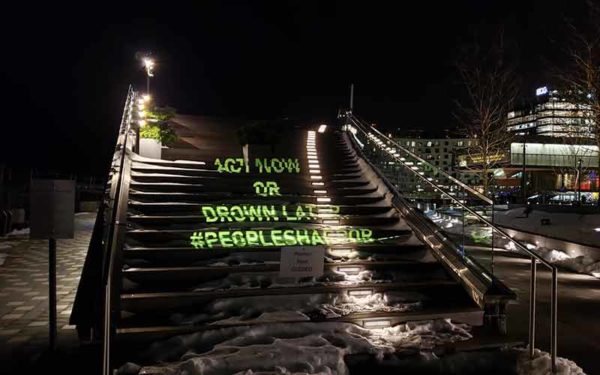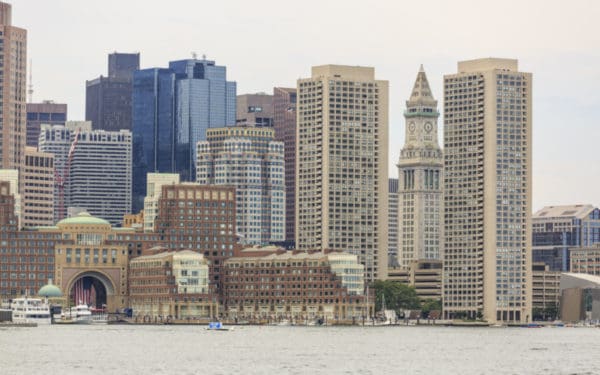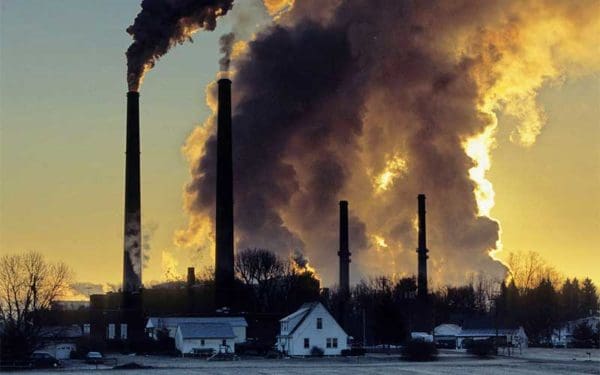Proposed Standards On Toxic Chemicals In Drinking Water Will Require Local Testing, Possibly Costly Fixes
“These rules are good news for public health in Massachusetts,” said Brad Campbell, president of the Conservation Law Foundation.
“These rules are good news for public health in Massachusetts,” said Brad Campbell, president of the Conservation Law Foundation.
From Cape Ann to Cape Cod, our infrastructure is not built to withstand the increasing impacts of storm floods, high winds, and soaking rain. This fact not only affects the health and safety of our residents but will also have an enormous influence on the region’s economic competitiveness.
“As a result of those intense rains, that treatment system is being overwhelmed on a regular basis, leading to violations of their Clean Water Act permit and leaving exposure of local waters and local communities to some pretty powerful carcinogens and other toxins,” said Brad Campbell, president of the Conservation Law Foundation.
CLF’s Healthy Neighborhoods Study shows that health goes beyond one’s diet or exercise regime. A healthy community has engaged, active residents who believe they can influence changes in their neighborhood that directly impact their lives. In 2018, our data found that health is linked to social support, housing stability, and even civic engagement and community… Continue reading Researchers Bring the Power of Data Home

We know that where you live matters for your health. Our community partners understand this firsthand because they live it every day. This past summer, the communities that participated in our Healthy Neighborhoods Study – Chelsea, Everett, Lynn, New Bedford, Fall River, Brockton, Roxbury, Dorchester, and Mattapan – turned that research data into action by sharing the results to make a difference where they live.

“This is great news for public health in the Commonwealth,” said CLF President Brad Campbell. “I applaud Governor Baker for setting protective standards for six of the so-far unregulated toxic PFAS compounds showing up in drinking water systems throughout New England, and for giving Massachusetts cities and towns new resources in his supplemental budget to make local water supplies safe.”

We recently headed out to Boston’s Seaport district to remind the people who live and work there about the unique challenges the neighborhood faces due to its waterfront location. our annual reminder took the form of a message projected onto prominent outdoor spots in the neighborhood. We called for action to make the Seaport – and all of Boston – resilient in the face of the climate impacts, like sea level rise, that we know are coming.

“We think ultimately the science will show that the standards should be even tighter, but this will certainly improve the protection of public health, and it opens a process to ensure that all these toxic chemicals can be out of our drinking water,” said Brad Campbell, president of the Conservation Law Foundation.
“This rule is a critical step forward in preparing Boston for the impacts of the climate crisis we know are coming,” said Deanna Moran, Director of Environmental Planning at CLF. “Protecting natural resources does not have to come at the expense of critical climate adaptation measures, and this ordinance strikes the right balance.”

Fracked gas was once considered part of a lower-carbon future. But this volatile, dangerous, and polluting fossil fuel now needs to be shown the door. Thankfully, as New England’s growing investment in cleaner energy ramps up, this transition is becoming easier. But standing in its way are the last gasps of the dirty fossil fuel industry. And they are not going quietly.
